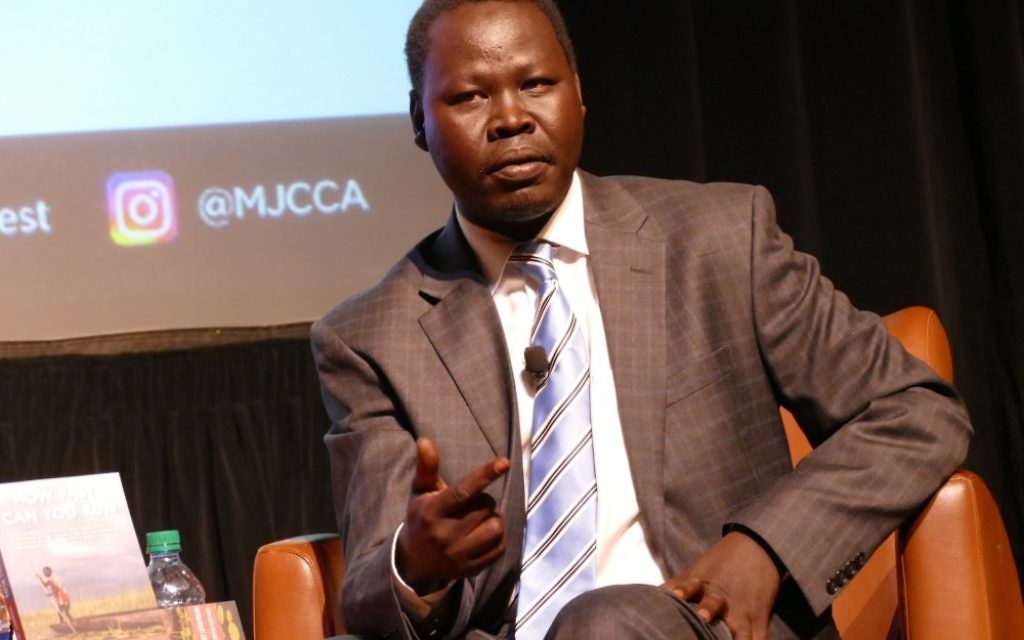South Sudan Refugee Lost and Found
Above: Michael Majok Kuch acknowledges that “in Africa, leaders tend to overstay in power,” but he’s optimistic about South Sudan’s future.
Working with one of the “Lost Boys” of South Sudan’s long war of independence from Sudan brought out the Jewish mother in Harriet Levin Millan.
The author of “How Fast Can You Run” said her instinct was to bring Michael Majok Kuch home with her to cook for him as if he were one of her children — and as if she could sense the void in him from not seeing his mother for more than 20 years, from the time he fled a military attack on his village in what is now South Sudan when he was 5 years old in 1988 and had that question from his mother ringing in his head: “How fast can you run?”
Get The AJT Newsletter by email and never miss our top stories Free Sign Up
Millan and Kuch talked about the novel she wrote about his life during the second-to-last event of the 25th Book Festival of the Marcus Jewish Community Center on Sunday afternoon, Nov. 20.
After escaping what Millan called “the swamps of hell” near his native Juet, Kuch walked across East Africa to reach a refugee camp in Kenya. He was granted political asylum in the United States and settled in Philadelphia, as did two brothers, a sister and a cousin, and it was only later that he learned his mother was in the same refugee camp and remained five years after he left.
“You have to appreciate what America has to offer,” Kuch said.
His mother and two other siblings received asylum in Australia, where they still live in Brisbane. Kuch visited his mother in 2008 and hasn’t seen her again.
Working with Kuch was a writer’s dream, Millan said. They sat together all day and talked while she took notes, then she went home and wrote it all up, and they would argue as friends over the results.
The book is a novel because the identities of some people had to be hidden, but Millan said the incidents in the story are all real. Even the cover photo is real, showing a 13-year-old (not Kuch) searching the swamps for his mother.
Millan and Kuch were interviewed by Derreck Kayongo, the CEO of the National Center for Civil and Human Rights and himself a former refugee from Uganda who said Kuch’s story felt familiar.
The plight of refugees is one of the crucial lessons in “How Fast,” Millan said, emphasizing that there are 65 million refugees in the world today. She’s upset at the idea that the United States would close its doors to those people in need.
“The refugee is the hero of our times. The refugee is beautiful,” she said. “We should be worshiping them, not refusing to let them into our land.”
Millan said she doesn’t like using the term “Lost Boys” to refer to the generation driven out or swept into the civil war that pitted the Muslim, largely Arab north of Sudan against the Christian and animist, African south. She noted that Kuch’s mother and grandmother had to walk 1,000 miles to safety just as he did, so it wasn’t just the boys who were lost.
And Kuch is lost no more. As an educated adult, he returned to his homeland when it was voting in 2010 on independence, which it achieved in 2011. He serves as the director of research and policy in South Sudan’s Office of the President and hopes to be part of the post-revolutionary generation that overcomes the new nation’s challenges.
“I had a good life in America,” he said, “but I had an obligation to go back and be the seed of a new country.”





comments